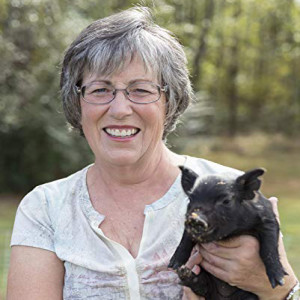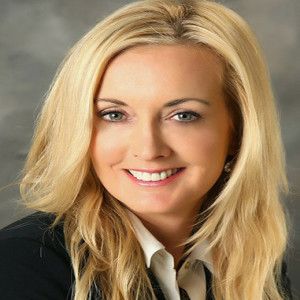AcresUSA: Tractor Time
Journalism
Episodes

Friday Feb 26, 2021
Friday Feb 26, 2021
Tom Philpott is the food and ag correspondent for Mother Jones. Before that, he covered the food system for Grist. His reporting has appeared in the New York Times, Newsweek and the Guardian. He’s worked as a bona fide farmer and now splits his time between Austin, Texas, and North Carolina. He has a new book out from Bloomsbury Publishing. It’s called Perilous Bounty: The Looming Collapse of American Farming and How We Can Prevent It. The book is the culmination of an impressive career spent holding industry and government accountable. Perilous Journey tells the story of two U.S. farming powerhouses — California’s Central Valley and the Corn Belt of the Midwest. Through this lens, Philpott makes the case that current agricultural practices and policies are leading us down the road to environmental ruin. And yet, there’s still hope on the horizon.
To find out more about Tom Philpott visit www.tomphilpott.net/
Tractor Time is brought to you by Acres U.S.A. and Barn2Door. Subscribe to our channel on YouTube, iTunes or anywhere podcasts are available. Also, find us at acresusa.com, ecofarmingdaily.com, and don’t forget to subscribe to our monthly magazine.

Friday Jul 26, 2019
Friday Jul 26, 2019
Hosted by Ben Trollinger / Editor, Acres U.S.A.
Hello and welcome to Tractor Time podcast, brought to you by Acres U.S.A., the Voice of Eco-Agriculture. I’m your host, Ben Trollinger, and as always, I want to say thank you to our sponsors, BCS America.
You’re probably heard of kamut (kah-moot), also known as khorasan wheat, also known as King Tut’s Wheat. It’s drought resistant and highly nutritious. It’s in organic breakfast cereals. It’s in pasta. People with gluten sensitivity can eat it. Artisan bakers drool over it.
It’s one of organic farming’s biggest success stories. It’s a story that’s rooted deep in history and it that might just show us the way forward.
I’m joined by Bob Quinn and Liz Carlisle, co-authors of Grain by Grain: A Quest to Revive Ancient Wheat, Rural Jobs, and Healthy Food.
The book details Quinn’s journey over the last several decades to turn his dryland farm in Big Sandy, Montana into a powerhouse of organic and regenerative agriculture. Through his multi-million dollar heirloom grain company, Kamut International, Quinn has managed to create a durable network of around 200 organic farmers.
Quinn was also instrumental in shaping the country’s first organic food standards back in the late 1990s. Before that, in the 1980s, he helped establish standards for his home state.
Liz Carlisle is a lecturer in the School of Earth, Energy, and Environmental Sciences at Stanford University. Her first book, Lentil Underground, prominently features Bob Quinn’s work and also won the Montana Book Award and the Green Prize for Sustainable Literature. She’s a forager of regenerative agriculture wisdom — and also a recovering country and western singer.
1 hour, 4 minutes

Tuesday Jun 25, 2019
Tuesday Jun 25, 2019
Hosted by Ryan Slabaugh & Ben Trollinger / Sponsored by BCS America
Good day and welcome to Tractor Time podcast, brought to you by Acres U.S.A., the Voice of Eco-Agriculture. I’m your host, Ryan Slabaugh, and as always, I want to say thank you to our sponsors, BCS America. Today’s theme is all about happy pigs, and profitable pig operations, and an interesting breed called Guinea Hogs.
First, I’ve got someone to introduce to everyone this episode. It will be the new host of Tractor Time, which I’m proud to say is Ben Trollinger, the new editor at Acres USA. I’m not going too far, but will stay involved helping Ben produce and grow the podcast, while I get to go focus on getting a few new exciting projects up and running.
Ben will join before he interviews Cathy Payne, our guest on this episode. Cathy is the author of Saving the Guinea Hogs, a new book that is on sale in the Acres U.S.A. bookstore.
First, I recently took a trip to Rodale Institute in Pennsylvania, and got a chance to tour their hog operation. To make sure this episode is all pig-themed, I thought I’d share some audio I got from touring their operation.
Thanks again to our listeners and our sponsor, BCS America. You can find this podcast at ecofarmingdaily.com, acresusa.com, or anywhere podcasts can be played. Thanks, and have a great week.
If you want, shoot a note to Ben at btrollinger@acresusa.com. He’d love to hear from you.

Monday May 20, 2019
Monday May 20, 2019
Hosted by Ryan Slabaugh
Sponsored by BCS America
Good day and welcome to Tractor Time podcast brought to you by Acres U.S.A., the Voice of Eco-Agriculture. I am your host, Ryan Slabaugh, and we are humbled to bring you the 30th episode. Today’s topic is one we have to talk about, but it’s not a whole lot of fun – Monsanto.
Our guest today, Carey Gillam, is a veteran reporter who has been covering corporate America for 25 years, including Monsanto and most recently, Bayer. This year, she’s been busy covering the Monsanto trials, suing agencies under the Freedom of Information Act, and discovering an amazing array of corruption that is fueling the more than 11,000 lawsuits against the company.
Mainly, she’s uncovered the fact that Monsanto has lied to and tricked farmers, land managers, growers, ranchers and city managers for 50 years about RoundUp. That as they tell their employees to behave differently around the product than they do consumers. And that they paid for fake science, paid off reporters, and got especially cozy with politicians around the world. France’s Parliament is exploring charges that they kept a list of politicians they liked and disliked. That’s nothing new to us here in the U.S., but that level of targeted lobbying does not go over so well elsewhere in the world. But the bottom line is, it’s toxic to human and animal health, and juries around the world that have heard their defenses do not see any redemption in them – in fact, it is quite the opposite. The lying has only added to their penalties, and their liabilities now range in the trillions, and Bayer’s stock price is 40% declined from where it was at the time they purchased Monsanto.’
Here’s a clip from the Canadian Public Broadcasting Channel’s recent coverage, which summarized the issue:
To be clear, we are talking about the specific formulation Monsanto uses in its RoundUp product that includes glyphosate – that’s an important distinction. Monsanto’s spokespersons deny all this and say there is no proof their product is unhealthy or shouldn’t be used. You can still find it everywhere, and even though towns and ciiteis are starting to make it illegal to use, it’s use is still prolific.
And who is fueling this worldwide coverage? Our guest today, Carey Gillam. She wrote a book called Whitewash: The Story of a Weed Killer, Cancer & the Corruption of Science, published by Island Press, in 2017. The way she threads her reporting in with current events paints a damning picture of Roundup, even garnering praise from Erin Brockovich.
And our guest today makes the strong point that banning RoundUp or glyphosate, or suing for billions, does not solve the real problem we are facing: an agriculture and food supply dependent on the lies that Monsanto has been giving farmers, and the safety nets are a bit too far down to feel comfortable leaping.
It’s our listeners who will really be solving this problem, but taking the information Carey gives us today to educate us on the forces at work in the herbicide world, and how we can make informed, healthy choices. You can make a difference by how you grow food, the food you buy at the store, and by the manner in which we defend eco-agriculture.
So, let’s get into the interview with our guest today: As a former senior correspondent for Reuters' international news service, and current research director for consumer group U.S. Right to Know, Carey Gillam's areas of expertise include biotech crop technology, agrichemicals and pesticide product development, and the environmental impacts of American food production. Gillam has been recognized as one of the top journalists in the country covering these issues.
A special thanks to our episode sponsor, BCS America.